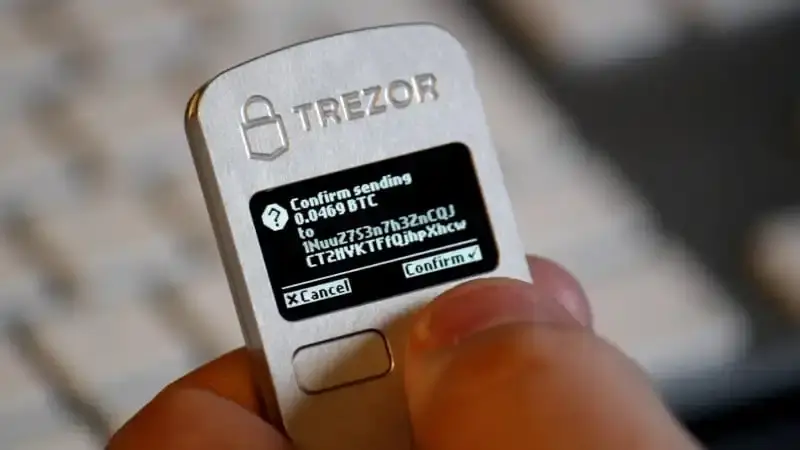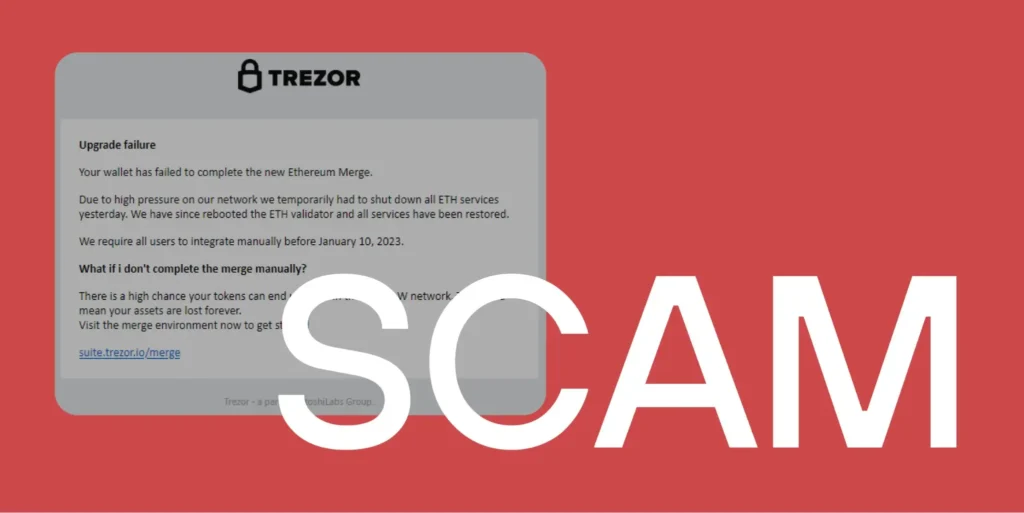Trezor recently raised the alarm about a devious phishing scam slipping through its support channels, pulling the wool over users’ eyes by masquerading as genuine replies. In essence: scammers spotted a chink in the armour and went full steam ahead, and now it’s down to you to keep your wits about you.

Image 1 (Source: The Block)
Trezor manufactures hardware wallets—compact devices that keep your crypto locked up tighter than Fort Knox. They rely on a secret recovery or “seed” phrase, the golden ticket to your funds. Let that phrase fall into the wrong hands, and they’ll make off with your entire stash.
How the Ruse Played Out
Here’s the low‑down: crooks have been exploiting Trezor’s contact form on its website. They lodge bogus support tickets using random email addresses, triggering automated replies that look like they came straight from Trezor.
These fake emails are no half‑baked efforts either. They’re spruced up, sounding dead on legit, and coax users into clicking dodgy links or handing over their seed phrases. Before you know it, you’re neck‑deep in trouble—one click, one slip‑up, and the whole lot’s at risk.
Trezor Responds in a Flash
As soon as Trezor cottoned on to the scheme, they pulled the plug on the loophole and reassured users that their core systems were untouched. There was no digital heist of customer data—just scammers taking advantage of automated responses.
The message from Trezor was loud and clear: they will never ask for your seed phrase. It’s non‑negotiable. Your recovery phrase is like the master key to your safety deposit box—never ever hand it over. Keep it stashed offline, preferably on paper locked in a safe spot.
Why Phishing Is a Constant Thief in the Night
Phishing isn’t a one‑hit wonder in crypto—it’s like an uninvited guest that keeps turning up. Even big names in the industry have been stung. At one point, CoinMarketCap had a sketchy pop-up trying to sweet-talk users into handing over their wallet info, while Cointelegraph ended up flying a dodgy banner that dangled a bogus token airdrop like bait on a hook. Both incidents were sorted lickety‑split, but they show even the heavyweights can get caught napping.
Trezor is keen to underscore that while they’re plugging holes, users must keep their eyes peeled too. Every email or message that asks for sensitive info should be eyed with suspicion—particularly if it seems to come from an official source.

Image 2 (Source: X)
When it comes to staying a step ahead of scammers, users should keep their wits sharp. Blindly clicking on links is a risky game—it’s wiser to pause, think twice, and head straight to Trezor’s official website rather than trusting whatever lands in the inbox. A little caution goes a long way.
Any email that turns up out of the blue, especially ones asking for seed phrases or nudging toward login pages, should raise red flags.
Important Update
We have identified a security issue where attackers abused our contact form to send scam emails appearing as legitimate Trezor support replies.
These scam emails appear legitimate but are a phishing attempt.
Remember, NEVER share your wallet backup — it must…
— Trezor (@Trezor) June 23, 2025
Recovery phrases deserve the same level of care as family heirlooms. Users should write them down and stash them somewhere offline, well out of reach. Storing them on screens or in the cloud is just asking for lightning to strike.
It also helps to stay plugged into official updates. Warnings from Trezor or other trusted sources can be helpful, but even those should be taken with a grain of salt until verified. Rushing to act without checking could end up doing more harm than good.
Read Also: Florida Man Burned in Crypto Trading School Scam, Loses $860K
As for the situation at hand, the dust has settled. There was no break-in—Trezor’s main infrastructure remains untouched. The contact form, which served as a backdoor for scammers, has since been locked tight. The gap’s been closed.
Still, the golden rule remains unshaken. Seed phrases must be treated like sacred secrets—never to be shared, no matter the circumstance. Staying alert isn’t just good practice—it’s the firewall between safety and chaos. Once guards are dropped, the vultures circle fast.

